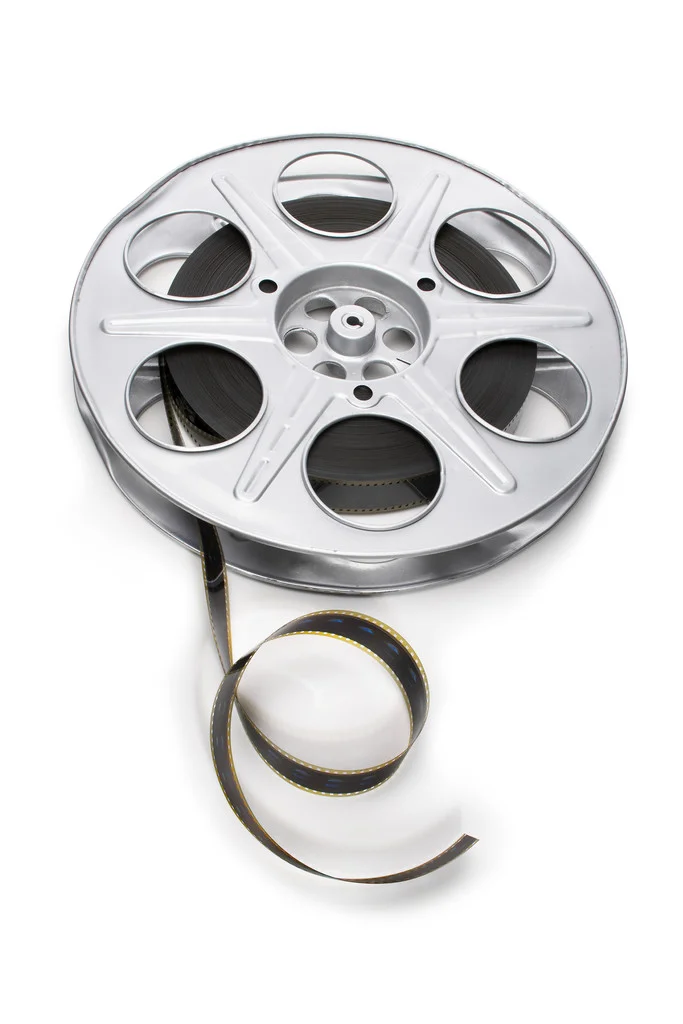
I have a wide range of interests. Beyond my love of tarot and my interest in spiritual development, I enjoy modern culture. Trends in music, fashion, entertainment and politics fascinate me. On this blog you will find my observations about the world in which we live - everything from dating advice to resturant reviews.
Here in the Dark Forest, anything can happen. If something captures my interest, I am likely to write about it here.
An Open Letter to Holy Clothing: Please Rethink Your Word Choice!
An open letter to a beloved clothing company, asking for more fashion, and less rudeness.
Dear Folks at Holy Clothing,
I am sure you know how much we in the tarot, Pagan, artistic and musical communities appreciate you.
We are grateful for your knowledge that beautiful women come in all sizes and ages.
We count on you to provide our ritual regalia, our work uniforms and our stage costumes.
We rely on you for the clothing that allows us to feel like ourselves.
You call yourself “Holy Clothing” because you know that many of us use your garments for spiritual work. Is it wrong then, for me to think that you should hold yourself to the highest possible standards?
My concern, originally, was for your use of the “g-word” in your marketing for the beautiful Talia skirt. When I visited your website, I saw that you use the word “Gypsy” quite frequently to describe your fashions.
In the ad that caught my attention and earned my ire, you encourage us to express our “inner Gypsy”.
In the 1970s, many of us used the g-word to describe people who travel a lot, and people who are free-spirited. There were songs, like Stevie Nicks’ “Gypsy” and Max Creek’s “Gypsy Blue” that made it seem acceptable to use the word “Gypsy” to describe a lifestyle, a fashion choice, or an aesthetic.
I’ve been a fulltime professional tarot reader for the past quarter century. During that time, clients have required me to “dress like a Gypsy”. This never felt comfortable to me, but the word-Gypsy-as-aesthetic was common in our popular culture. In the 1990s, people looked at me like I had two heads when I suggested to them that we shouldn’t name our spiritual group “Gypsy Grove” because the word “Gypsy” is an ethnic slur.
Eventually, I gave up, embraced my “Gypsy costume” and decided I had been overly sensitive.
Social media allows us to connect with people from all over the world, and to learn about their struggles first-hand. Over the past few years, I have recognized that it was indeed wrong of me to call my costume a “Gypsy costume” rather than a “fortune teller costume”. I had been right all along to bristle against the use of the g-word, and the idea that “Gypsy” is an aesthetic.
Your use of this word is unintentionally rude and inaccurate. The only people who have an “inner Gypsy” are the Romani, or Roma. Even then, use of the g-word is problematic.
It’s true that some Roma use the g-word to describe themselves. That puts it in the category of the n-word. There are some words and phrases that can only be spoken by the people whom the word originally maligned. When they speak it, they take their power back. There is nothing empowering about the way you are using the g-word. Quite the opposite, really.
Please, read some history. Understand how brutally the Roma were treated by Hitler. Learn why the word Gypsy IS an ethnic slur, and IS NOT a description of an aesthetic.
In 2017, when ethnic-based hatred is a revealing itself all over the planet, doesn’t it make sense for us to be extra-special careful with our words?
Don’t we magickal folk understand the power of words on a deep level?
When you ask us to embrace our “inner Gypsy”, what you are really asking us to do is embrace our inner free spirit, our inner hippie, our inner mystic, our inner artist, our inner dancer…
Why not say something like that, instead of using a slur? And, beyond that, there is absolutely nothing about the lovely Talia that is even slightly reminiscent of actual traditional Romani attire.
When you ask us to embrace our “inner Gypsy”, you sound as terrible as if you were asking us to embrace our “inner Jap” or “inner Chink” or “inner Mick” or “inner Spic”.
Why reduce an entire ethnicity to an inaccurate and insulting aesthetic?
The 1970s called, and they want their insensitive language back.
You make beautiful clothing. Couldn’t the words you use to market it be equally lovely?
You pride yourselves in your ethics, and your hand-crafting. Please, let your words match your stated ethical commitments.
Have a Good Day!
When I say "have a good day" I mean it!
I have always despised banality in language. Expected responses are boring, and often untrue. I remember, as a teenager, challenging my father, the minister, after hearing him exchange pleasantries with his congregants. I knew the essence of those pleasantries were often untrue. He wasn’t “fine, thanks,” he had a million problems that I knew about, and they didn’t. It just didn’t seem honest or useful to me.
I feel differently now. I tell everyone to “have a good day” when I see them, whether I particularly like them, or not, just as my father did. I don’t do it to be polite.
I do it because I’ve realized the power of positive words and thoughts.
The phrase “Have a Good Day” has been used for centuries. Its counterpart, “Have a Nice Day”, is a newer construct. Both are now synonymous with “goodbye”. With the right inflection, both can be said sarcastically, in a way that makes us think a good day is exactly the opposite of what we are being wished.
These days, when I say “have a good day” to someone, I say it as a prayer, or a magical spell. It costs me nothing. If the three-fold law holds, my day will go well, too.
Perhaps the more we tell folks we are “fine, thanks,” even if we are truly not, the more energy we may have to be fine.
Wishing each other well is more than a simple courtesy. It’s a radical act of magick for world peace.
The more people having good days across the planet, the better the planet will be.
Have a Good Day!
A Grammar Cop Turns in her Badge
Although my writing is full of hasty typos, my inner Grammar Police is pretty vocal. Sometimes it is everything I can do to keep from spray-painting road signs to encourage motorists to drive slowly, rather than slow.
I was raised that way. When I brought my new husband home to meet my grandmother her first words to us were that I was pronouncing his last name (now mine) incorrectly. I wasn’t – but that’s a good example of the tree from which my apple fell. My own apples (now trees themselves) are careful speakers and writers, too.
I understand the intentional use of bad grammar for emphasis, as in “That ain’t gonna happen!”
I understand poetic license. “He don’t love you like I love you” sounds better than “He doesn’t love you like I love you” in the cira-1975 pop tune.
And now, finally, I understand something else about language. Usage changes. The rules change. And that’s not always a bad thing.
If language didn’t change we would still say words like “forsooth” and “verily.” When I was a girl I read a manners book that instructed polite young ladies to acknowledge a kindness with “I thank you.” The curt “thanks” was rude.
In modern casual writing we now use terms like “ok” and “cool.”
Nonetheless, I have often railed against the changes in our language, fearing that when we lose the form of language we lose some of its function. I worry that that our language is becoming less beautiful and less precise.
Recently I read something that changed my understanding. The evolution of our language is not always about apathy, laziness and stupidity. Sometimes it’s about brilliance and creativity.
One of my favorite writing blogs is “Daily Writing Tips.” Recently Maeve Maddox shared “The New, Delightful use of Because” which outlines and praises a new slang way of using the word “because” as a preposition. For example, “I’m going to the movies because, popcorn!” Or, “I signed up to take senior citizens to the theatre because, hey, free plays!”
Maddox admits that not all grammarians will dig this new use of “because,” but it seems she does, and so do I, because, hey, clever sentence structure.
Communication needs to be precise. But words are also the material of creativity. The evolution of language is not always about dumbing down. Sometimes it’s about lightening up. Sometimes it’s about our cultural agreement of what things mean. Sometimes new language trends are smart, sassy and descriptive. And that’s cool because, innovation!
Note:
While Maddox was clear to point out the obvious - that the "because" preposition should not be used in formal writing, I didn't get that her use of the word "delightful" in the title was actually sarcastic. She doesn't like it. but I still do.
Word Choice Matters
I tend to be a bit draconian about words, grammar and language. The irony is that I make a lot of typos, but that’s not what this post is about. This post is about my belief that precision in language creates effective communication. I also believe that creativity is engendered with we take the time to find the right words.
There is a belief in our society that if you know what I mean then my lazy words are good enough. I don’t agree. Thumb-typing on a smartphone notwithstanding, I believe that when we have something important to say we need to take the time to say it well.
I believe in the spiritual power of language. We use words to pray. We use words in ritual. We use words in magick. There’s a reason for that. Words really do have power.
I want to cite two examples of poor word choice that have made me cringe this week. The first is from an anti-bullying meme floating around Facebook. You’ve probably seen it. This meme irritates me so much I have actually commented (politely) when I have seen my friends post it. I always get the same response. My friends agree it’s not worded well, but to them it’s the thought that counts. I don’t really see it that way. I think a negative message is damaging even if the original intention was good.
The meme in question begins “That girl you called a slut in class today, she’s a virgin. The pregnant girl walking down the street, she got raped.”
It goes on to discuss other victims of bullying, such as “the boy you made fun of for crying, his mother is dying.”
The obvious point of the meme is that one can’t know the reality of a person’s life and so bullying a person based on your suppositions is wrong. I completely agree. But bullying a person for any reason is wrong – end of story.
As of today this meme has been shared 244,842 times. Am I the only one who finds this meme completely disturbing?
If a child were crying for a less dire reason than a dying mother would that mean he deserved to be bullied? If an old man’s face were scarred in a bar fight rather than a war would it be acceptable to mock his appearance?
The worst part for me is the obvious misogyny of the first two lines. To me this meme says that if the girl were not a virgin it would be just fine to slut-shame her. According to this meme getting pregnant by consensual sex is clearly less acceptable than getting pregnant through the horror of rape.
According to this meme, young women who enjoy sex deserve to be bullied. What we don’t want to do is slut-shame a girl who didn’t choose to have sex. Slut-shaming a girl who likes sex is just fine.
The idea that we can’t know a person’s circumstance is valid. This meme takes an evil twist by suggesting that if we know a person’s background we can make an educated decision about whether or not to bully them.
My second example of really regrettable word choice came to my attention when Chris Christie screamed at a teacher who is a member of the Badass Teacher Association. I couldn’t believe that a group of teachers – those whose job it is to teach communication skills and inspire creativity – couldn’t come up with a better way to describe themselves than “badass.” If a student wrote an essay describing herself as “badass” would that be an A paper?
I fully support the goals of the Badass Teacher Association but I am shocked and saddened by their word choice. I fear, too, that young teachers are the product of the very education system against which they now rail. No wonder they don’t have enough command of the language to find a decent name. The term “badass” is listed in the Oxford Dictionary as slang. It’s actually a word I use from time to time.
In my opinion, a slang term based on an off-color word is not an appropriate title for a formal association of educators. If our educators don’t care about the language we share, who will? It’s tough for me to believe that they care about education as much as they say they do if the best word they can find to describe themselves is “badass.”
I know language is always changing. I know we don’t speak the same way we did a hundred years ago. What concerns me is the prevalent concept that the words we choose don’t matter. The excuse is that we know what we mean, so we don’t need to be picky about how we say it.
I think if we don’t see the value of careful word choice the words we say will eventually cease to have any power or clear meaning at all.
When Fiction Invades our Language
I've recently noticed how often we use references from novels and films in our day-to-day conversation. Sometimes it is made-up words, like "muggle." Sometimes it is a phrase that takes on a new meaning because of the story plot, like "gas-lighting."
Often we talk about art imitating life and life imitating art. This is what happens when art is so good, or so popular, it becomes part of life.
This is not a new trend. Gas-lighting as a term for a type of psychological abuse comes from a 1938 play and subsequent film adaptation called "Gas Light." Some of our common expressions are actually quotes (or misquotes) from Shakespeare himself.
And which one of us hasn't used the phrase "I'll have what she's having" from When Harry Met Sally?
But here's what I find really interesting. There is a trend amongst spiritual people to use terms from fiction to describe their spiritual activities. For instance, a part time tarot reading might refer to her day job as her "muggle" job. Spiritual teachers sometimes refer to the lack of enlightenment amongst the masses as "The Matrix."
In a way, this is simply another example of how books and movies worm their way into our language. Sometimes it is helpful, because it creates a modern reference that the uninitiated can understand.
I have to admit I find it a bit disturbing, though, and here's why.
Healers, psychics and other alternative practitioners have a hard enough time maintaining credibility in an unenlightened world. Doesn't it make us seem less credible when our vocabulary comes from fantasy and sci-fi?
I wonder, too, if the professionals that choose to use these words might secretly question their gifts, their training and their path.
But here's something else to think about. Within fiction there is often great truth. Harry Potter teaches the power of love. The Matrix teaches the courage to seek truth. I find spiritual truths in Stephen King novels all the time.
I choose not to use phrases from fiction to describe my life, my work or my spiritual path because those things are facts, and fiction is, well, fiction.
But I do recognize the truths we all learn from stories, myths and movies, and I would be lying if I said that I didn’t use those in my spiritual life and work.









